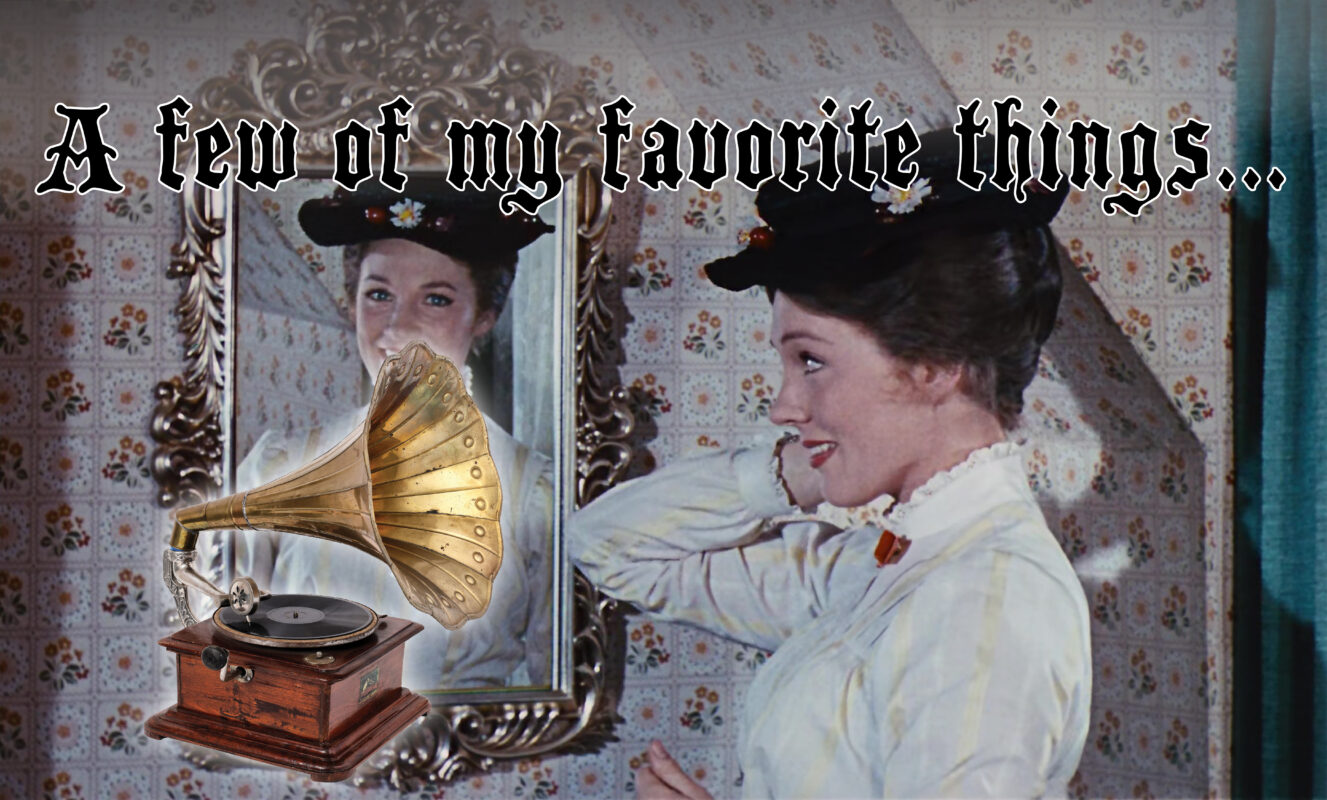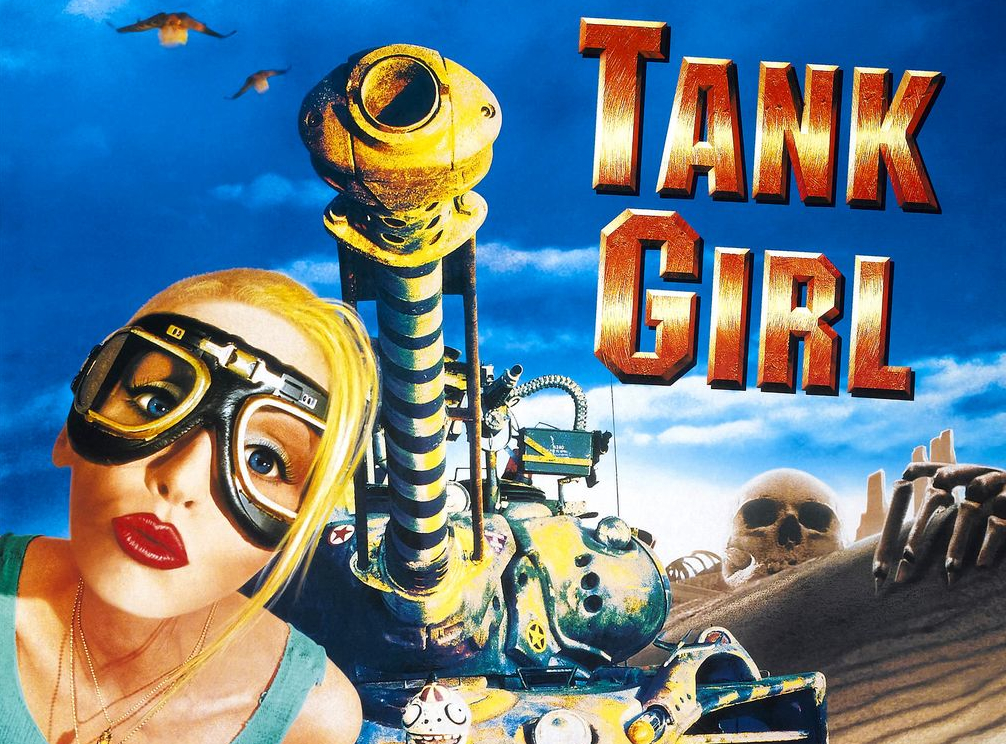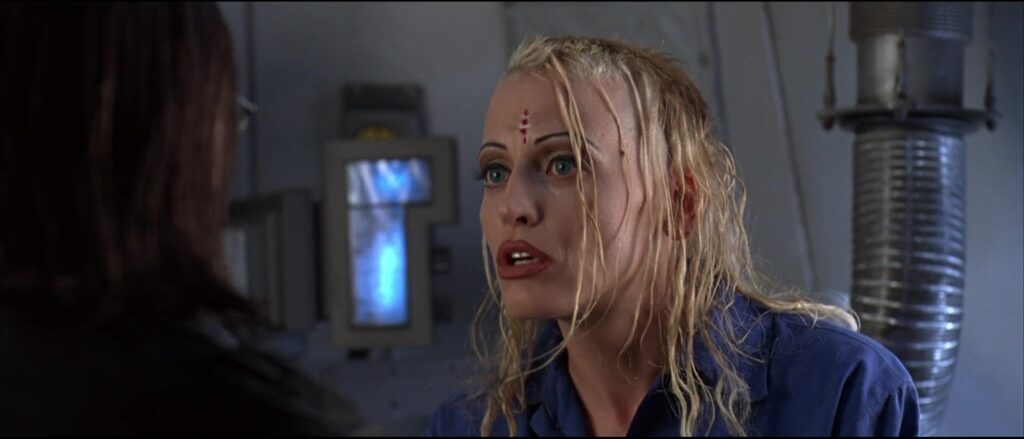Today I watched the legendary 1940s Fleischer Superman cartoons. I thought “they’re in the public domain. What do I have to lose?”
Everything, as it turned out. I had everything to lose.
But let’s not think about that. This is my safe space, and I will fill it with happy things. Such as how Paramount acquired the film rights to Superman in 1940 and then contracted Fleischer Studios to animate a series of shorts based on the property and these came out between 1941 and 1943 and are regarded to this day as milestones of Golden Age animation and there were seventeen of them not sixteen not eighteen happy things happy things happy things
Was This The True Birth of Superman?
Superman changed greatly as he slid out of the cultural birth canal. At the very start, he wasn’t even a hero.
In 1933, writer Jerry Siegel and artist Joe Shuster self-published a short story called The Reign of the Superman (read it here). Using a fragment of a meteorite from “the Dark Planet”, a mad scientist turns a homeless vagrant into a “Superman”, a megalomaniac villain who seeks to rule the world.
This character, of course, wasn’t Superman.
In June 1938, the Siegel/Shuster duo reinvented the character for Action Comics #1. This new Superman was a heroic figure: an intrepid crime-fighter who lives under the undercover identity of Clark Kent.
But this character also wasn’t Superman.
Yes, the hero of Action Comics #1 has many similarities with Superman as we currently recognize him, and could fairly be called the genesis of the character. But he’s not all there yet. He’s not (explicitly) from the planet Krypton. He cannot fly (he jumps really high instead). He doesn’t live in Metropolis but Cleveland, apparently (in Action Comics #2, it’s mentioned that Clark Kent’s a reporter for the Cleveland Evening News). He apparently enjoys killing people. It’s OK, though—they’re gangsters or Irish or something.
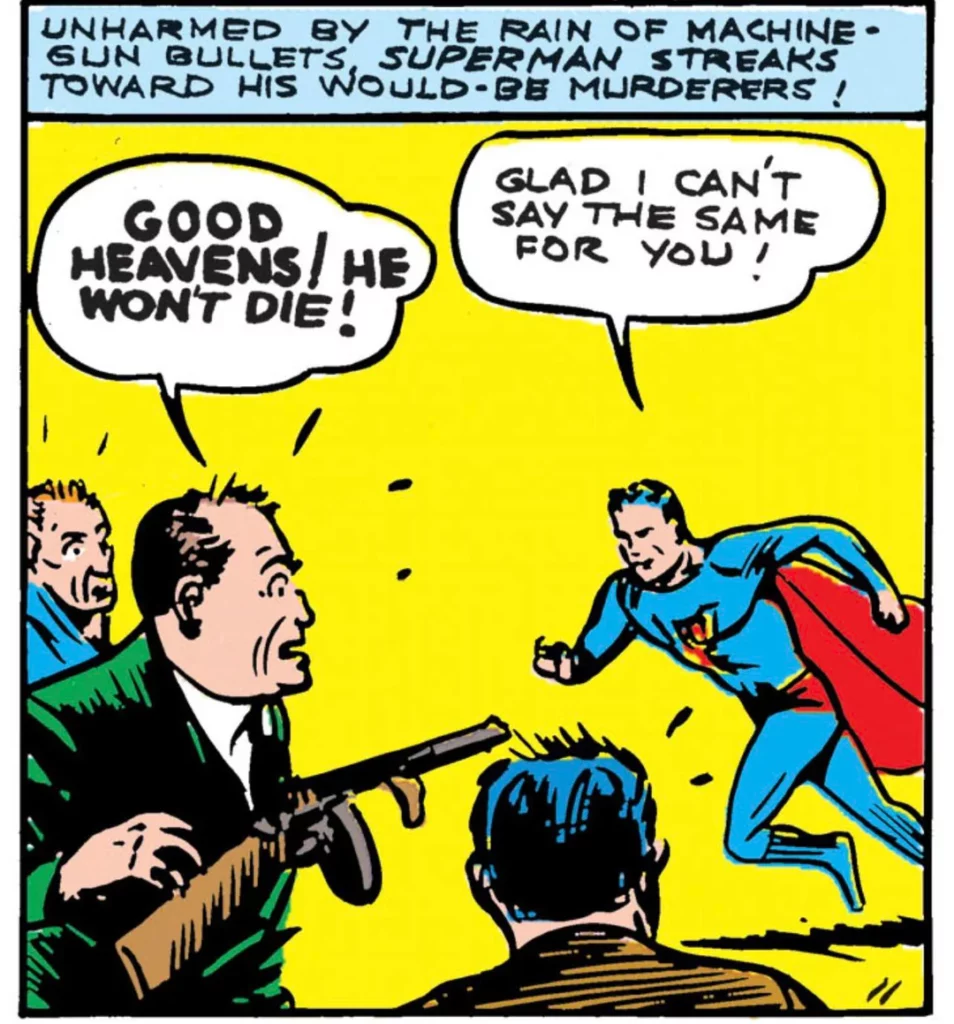
The 1941 cartoons reflect another evolution of the Superman conceit. The Fleischers, faced with the task of animating the character, felt it would look stupid to have him jumping around everywhere (as opposed to every other part of Superman’s design, which is far from stupid) and gave him the power of flight. This is now Superman’s marquee ability. Additionally, many famous Superman phrases (“It’s a bird, it’s a plane!”, “Faster than a speeding bullet!”, and “I wish I had a third example!”) hail from the cartoon, as does the trope where he changes into his costume in a phone booth.
So do these shorts depict the “final form” of Superman?
No. The Fleischer Superman doesn’t live in Cleveland or Metropolis, but in Manhattan. There’s no mention of Lex Luthor or Kryptonite, and no attempt to situate him in a world of other superheroes (which I always found odd—is he still “Super” if there are others like him?) Lots of bits and pieces are missing.
So when was Superman completed as a character? Who says he ever was? Superman isn’t a character, he’s a process, an endless toppling domino-train of mutations that started in 1933 and continues through to the present day.
There is no dividing line for when Superman “became” himself, just as there’s no point where monkeys became modern humans. Even now, writers and artists are tinkering with him: retconning bad arcs, resculpting his character and world, drawing him in new ways, leaving their metaphorical DNA all over him. Nothing’s safe from revision, not even the logo on Superman’s chest.
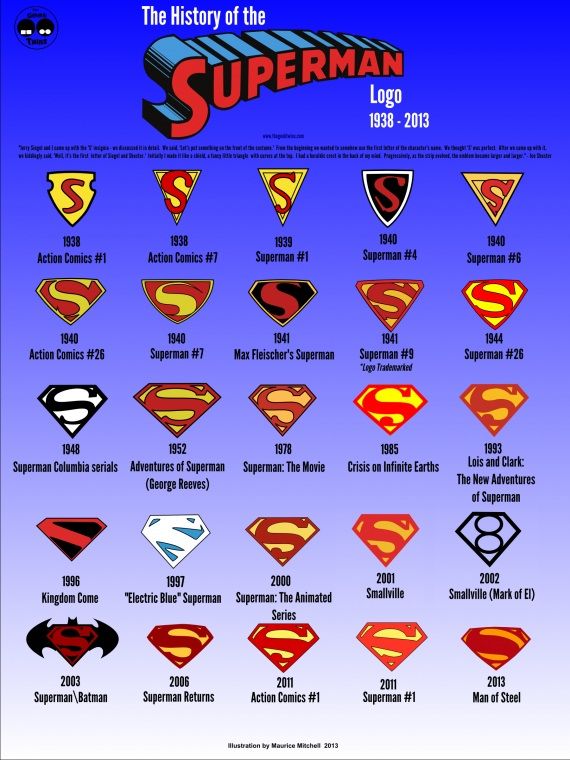
Superman exists as a cloudy swirl of ideas, and whenever the sediment starts to settle, we stomp his visage back into mud. He will never stop changing, because he exists as a product positioned in an ever-evolving market. The primitive villainous Superman of 1933 is no more or less the “real” edition than Justice League’s mustache-less Henry Cavill.
The Demon-Eaten Superman
The question of haecceity—the “this-ness” of a thing—exists at the heart of philosophy, and rips that same heart out. Duns Scotus wrote about this issue in Ordinatio: when does a stone stop being a stone? How many pieces can you chip away before it loses its identity as this particular stone? In the early Sino-Indic Buddhist text 大智度論, or Da zhidu lun (of disputed authorship, but traditionally attributed to Nāgārjuna), there is a creepy story:
There once was a man who undertook a distant journey on assignment, and he spent a night alone in an empty hut. In the middle of the night a demon arrived carrying a corpse and placed it down in front [of the hut]. Then another demon arrived chasing after the first, and began shouting angrily at him: “That corpse is mine! How did you end up with it here?” The first demon replied: “It is mine! I brought it here myself!” The second demon said: “In fact I was the one who carried this corpse here.” The two demons each grabbed one hand [of the corpse] and struggled over it. The demon said: “Here is someone we can ask.” The second demon then asked the man: “Who brought this corpse here?” The man thought to himself: “These two demons are pretty strong. If I speak the truth I am certain to end up dead, but if I speak falsely I’ll also end up dead. In either case there is no escape, so what is the point inlying?” So he replied: “The first demon carried the corpse here.” The second demon was furious, grabbed the man’s arm, pulled it off, and threw it to the ground. The first demon took one arm from the corpse and affixed it back on the man. In this fashion, both arms, both legs, the head, flanks, and indeed the [man’s] entire body were changed [into the body of the corpse]. Thereupon the two demons joined in eating the [original] body of the man who had been transformed, wiped their mouths, and departed. The man thought to himself:“ I just saw, with my own two eyes, two demons eat up my body—the body to which my mother gave birth. Do I actually now have a body or not? If I do, then it is wholly the body of another. If I don’t, then what is this body?” Thinking like this made him horribly confused, like a madman.
(Text quoted from The Curious Case of the Conscious Corpse: A Medieval Buddhist Thought Experiment, Robert Sharf 2023, Reasons and Empty Persons: Mind, Metaphysics, and Morality).
It’s a variation on the Ship of Theseus thought experiment. A plank in Theseus’s ship is rotting away, so you pull it out and replace it with a new one. It is still clearly the Ship of Theseus. But one by one, the other planks rot away, and are replaced in turn, along with its sails and fittings. Eventually, none of the original ship remains. Is it still the Ship of Theseus?
Some continental philosophers (Wittgenstein!) try to rescue the notion of haecceic identity by connecting it to a process or a system. Consider the sequence of sets {a, b, c}, {b, c, d}, {c, d, e}, {d, e, f}. The last set {d, e, f} has no elements in common with the first {a, b, c}, but we still recognize it as a variant of the first, because they shared common elements in the middle. Their identity rests on the larger process that they are a part of.
Is the demon-eaten man in Da zhidu lun still himself? Wittgenstein would probably argue “yes”, because he’s part of the same flowing river of consciousness, regardless of what atoms compose his body (it’s important that he remembers “his” old flesh). Likewise, the Ship of Theseus remains the Ship of Theseus, because its planks were replaced one at a time, new caulked against old. If there is a process linking the past to the present, the identity remains.
But then how do you allow room for a thing to become something else? Humans are distantly descended from primitive eukaryotes called protosterol biota, which lived more than 1.2 billion years ago. But humans are not protesterol biota.
And it doesn’t tell you when a thing actually begins. Most philosophers debate the point where the Ship of Theseus stops existing, but it’s equally fraught to say when it starts. When was the moment when the Ship first appeared? When the final nail was hammered in? Surely it could have sailed without that nail. When the lumber was fully milled? But what if a splinter broke off, and was left behind? Did the Ship of Theseus already exist in the trees before they were cut down? Or when those trees were seeds under the soil? When did the Ship of Theseus first amalgamate? Was it always with us, glistening with the dew of creation?
Superman is like that: a creature without start or end. He’s all process and flux, a red metal endlessly beaten into new shapes by the hammers of artists, never allowed to cool.
Biologist Richard Dawkins wrote his “METHINKS IT IS LIKE A WEASEL” algorithm to prove that sophisticated order can emerge out of just two things: mutational pressure and selection. But this algorithm is simplistic: unlike actual evolution, Dawkins’ program has a defined goal to aim toward. Once the program has generated the words “METHINKS IT IS LIKE A WEASEL”, its task is complete.
But real evolution, like art, has no end goal. Living creatures merely seek to survive and propagate more of themselves. So do nonliving creatures. Superman will never be complete, because no creative work is. Some artists say an artwork is “finished”, but they are lying. They merely got tired of working on it. Lock them in a room with their “finished” painting and they’ll last five minutes max before noticing something wrong. Something that offends the eye, and has to be corrected. They’d add a brushstroke, then a second, then one more. Artists are demons, devouring the limbs of their creations and sewing on new ones like hell’s dollmakers.

How Much Did the Fleischer Supermans Cost?
A lot. They cost a lot. You may have heard some variant of the below:
“Superman was a cultural phenomenon, cartoon shorts were booming, and Paramount was ready to pay top dollar for an animated Superman. But Dave Fleischer didn’t want to work on it, so he quoted an absurdly high amount of $100,000 per episode, expecting them to refuse. But they accepted his quote! So then he had to make the shorts, with the biggest budget ever! LOL!”
That is broadly but not entirely correct. Paramount bargained the Fleischers down to a smaller budget of $50,000 for the pilot, and $30,000 apiece for the remaining sixteen cartoons (eight of which were made without involvement from the Fleischer brothers). The total was $530,000, or $3,117 per minute of animated footage.
Compared with the budgets of early animated movies, this was generous but not extravagant. Snow White and the Seven Dwarves (1938) cost $1.5 million, or $18,072 per minute of footage. The Fleischers’ own Gulliver’s Travels (1939) had a $700,000 budget, or $9,210 per minute of footage.
Even by the standards of animated shorts, a $30,000 budget wasn’t unprecedented. Some of Walt’s Silly Symphonies cost around $30,000 to make, for example. (Source: Gabler, Walt Disney: The Triumph of the American Imagination, p214), and that was eight years earlier, during the Depression.
Nevertheless, the Fleischer Supermans are legendary for their high animation quality. That’s the main thing you’ll take from them: how good they look. The machines and the buildings look extremely lifelike: it’s early draft Katsuhiro Otomo, obsessed with gears and rails and steam engines. Things have a wonderful cinematic drama, as well as a Milt Kahlian sense of heft and weight. The Fleischer studio had clearly moved beyond Betty Boop.
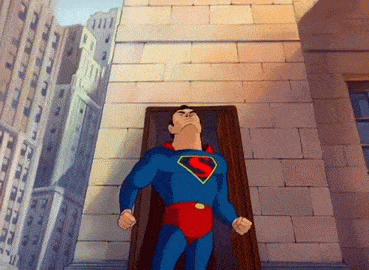
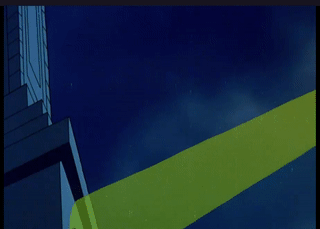
The writing is…somewhat less excellent.
Does Superman Suck Balls as a Character?
I don’t “get” Superman. Putting aside the question of whether he’s interesting, how do you write compelling stories around a guy who can do anything? 404 Error: narrative tension not found.
Modern writers have a postmodern answer: debase him. Blacken his eye, and throw mud on his cape. He’s been built up on a pedestal, so pull him off it. Break down everything that’s good and pure in him, and reveal the lie of American exceptionalism. Make him Subman.
But Superman’s early 1930s writers don’t do that. They portray him without a hint of irony. Indeed, once the shorts’ intriguing art deco sci-fi flair wears away, they settle into a familiar trudge. A bad guy will build a visionary techno-gadget, use it to commit some laughably anticlimactic crime (like robbing a bank or stealing jewels), and then Superman will show up, and just…win. It’s never clear how the villain expects to overcome such a mighty adversary. They seem like idiots for even trying.
Also, Superman’s power level wildly fluctuates.
- In “The Mad Scientist”, he lifts a toppling skyscraper.
- In “The Arctic Giant”, he effortlessly overwhelms a Godzilla-sized monster.
- In “Eleventh Hour” he pulls a Japanese battleship to the bottom of the ocean by pulling on its anchor chain.
- In “Terror on the Midway”, he barely wins a fight against an ordinary black panther.
- In “Japoteurs” he cannot get past a locked door.
In “The Mechanical Monsters” he uses X-ray vision, but otherwise the writers seem to forget he has this ability. There’s a maddening sense of nonexistence to Superman. Like he has no traits, he’s just whatever the writers need to get this month’s short out the door. Superman’s only consistent power is “he always wins, perhaps after grunting and straining in a suitably manly fashion”.
What’s the appeal of these stories, and this character? Possible answers:
- Superman is closely entwined with America’s perception of itself, and nobody ever went broke with a theme of “AMERICA! FUCK YEAH!” Particularly not in 1941.
- There are Rooseveltian political overtones to the character that people related to. Often, Superman’s enemy in the early comics will be a slum landlord, or a circus owner who mistreats his animals, or some other populist bugbear. You could call him New Deal Man and nobody would blink an eye.
- It’s provocative to make the greatest American of all a foreigner—a provocation that I’m sure Siegel and Shuster (whose names were once Segalovich and Shusterowich) were both aware of and intended.
…But ultimately, Superman makes sense not as a character, but as the embodiment of an audience fantasy: the little man, empowered. We love Superman, not because he can fly or punch through walls (as we’ve seen, he sometimes can’t do either of those things), but because he’s Clark Kent. Don’t discount the man on the street! He could be a hero!
But that doesn’t work for me. Clark Kent is not the average man. He is a bland boy scout with none of the flawed roughness that makes humanity interest. The average man on the street picks his nose, farts, and masturbates. He laughs at racist jokes, supports questionable political candidates, and leads a double life that’s spectacularly unheroic—the real Clark Kent doesn’t wear a cape, he has a secret second phone hidden at the bottom of his sock drawer, where he hopes Lois Lane won’t find it. I keep hoping to find a flaw in Clark Kent. Instead, he’s perfect. You cannot write a paean to humanity and then fail to depict humanity.
Watch Disney’s Mickey’s Rival, from a half-decade earlier, and you’ll see this done right. Mickey and Minnie Mouse are on a date together, when some smooth-talking jerk pulls up in a fancy car, and makes a pass at Minnie. Unbelievably, Minnie accepts! Mickey (who actually had a character in his early years) fumes and seethes and clenches his fists. Wilfred Jackson’s direction is masterful, and puts us squarely in Mickey’s shoes. He’s weak and he’s pathetic and he’s us. Despite all our rage we are still just a rat on a page. Mickey might be a ghastly quasi-minstrelsy rodent whose malformed visage is injected-moulded onto every hunk of plastic in the Pacific Garbage Patch…yet in “Mickey’s Rival” he’s more human than Clark Kent will ever be.
The truth of Superman is that he’s a children’s character who has attained an unusual place in the pop culture canon due to his longevity and influence. You can analyze him and make him seem deep and profound, but this is like doing X-ray crystallography on a cream soufflé. He’s just a kids’ character.
I find this inspiring. In fact, it’s exactly the tribute to humbleness that Clark Kent isn’t. Even a kiddie comic can lift a god up into heaven.
“Monstrous Tracks of Unknown Origin”
One of the episodes, “The Arctic Giant”, features a dinosaur.
People have always loved dinosaurs, and all they represent. Ancient dirt, vomiting up implications of an ancient and unthinkable past. Dinosaur bones are like shadow puppets gyrating against the wall of the present.
Past generations had their Jurassic Parks. 1933’s King Kong really pushed jazz-age dinomania into the mainstream (King Kong’s influence is also strongly felt in the Superman shorts. In “Terror on the Midway”, the colossal ape makes an uncredited appearance!), but that’s only the most famous example. Dinosaurs feature prominently in Hugh Lofting’s Dr Dolittle books, as well as in Arthur Conan Doyle’s The Lost World. A few decades earlier, the so called “Bone Wars” of early paleontologists had captivated the public. These monsters locked deep in time were awesome, partly because you could imagine them into whatever shape you wanted. There weren’t any of those “dinosaurs were warm blooded!” and “dinosaurs should be depicted with feathers!” types running around back then, damn it.
An important piece of early animation is Windsor McCay’s Gertie the Dinosaur, which is from 1914 and remains highly interesting today. It’s arguably the first 2D animated short to develop a character. Gertie is shy and clumsy. She keeps doing the wrong thing and getting scolded for it. She’s a far more human character than Clark Kent, aside from the moment when she attempts to murder a woolly mammoth by throwing him into the lake—an act that the narrator expresses no disapproval for, oddly enough.
(But seriously, this is starting to worry me. Are there any classic animated icons that haven’t attempted homicide? What about Koko the Clown? Has he killed before? I’m joking. He’s a clown. Of course he’s killed before.)
A collection of 10,000 drawings on rice paper, Gertie not only precedes color and sound, but also the invention of translucent cel mattes. Notice the flicker of the background. There’s a “holy fuck” moment when you realize that they’re drawing the background over and over, thousands of times. I imagine McCay and his assistants breathed a sigh of relief whenever Gertie ate part of the scenery. One less thing they had to draw.
Anyway, Superman also features a dinosaur episode. (I know it’s not a TV show and doesn’t have “episodes”, but my heart insists otherwise). “The Arctic Giant” involves a team of scientists bringing back a frozen “Tyrannosaurus” from the wastes of Siberia. Unfortunately, it unthaws in the middle of New York or Cleveland or wherever we fucking are, and starts rampaging around the city.
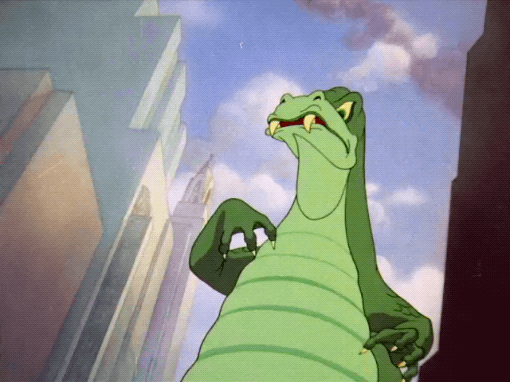
The animation on the dinosaur is a bit lackluster (I guess here’s the part where they influenced DiC and Phil Harnage). You might question the scientific believability of a giant lizard living in an arctic climate. Well, obviously it didn’t live. It froze solid. You people need to pay attention.
The Tyrannosaurus lays waste to half the city in grand style (there’s a fantastic shot of the dinosaur stepping on a car and crushing it like a tin can), before Superman gets his butt into gear and overwhelms it. It’s an exciting episode, although the usual plot contrivances (Lois Lane is an idiot who gets into trouble, etc) appear.
The dinosaur is silent! It keeps opening its mouth, as if it’s roaring, but it doesn’t make a sound. I find this very creepy!
Other people apparently find the dinosaur’s silence odd. I found a Youtube fan edit that actually dubs Godzilla roars over the dinosaur’s silence.
Here’s something else creepy. Youtube has a new feature where it shows you the moment people generally spent the longest watching. Wanna guess what that huge bulge at the 1/3 mark represents?

The first time the dinosaur appears? Good guess, but no. It’s the first appearance of Lois Lane. Dinosaurs are cool to look at, but they’ve got nothing on PRETTY GOILS.
Superman as a Propaganda
In late 1941, the United States entered World War II: or was forcibly entered, you might say. The ripples from Pearl Harbor took a while to reach the Fleischer Superman shorts, but reach him they did.
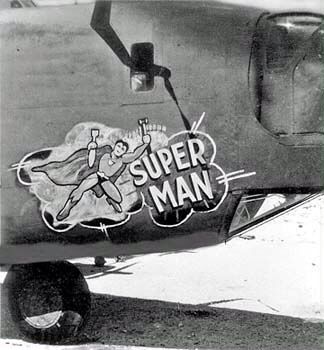
The animation quality remains high in the back half of the Fleischer Supermans, yet the content turns sharply propagandistic. Superman is staged against the backdrop of omnipresent war, with his enemies becoming the Imperial Japanese and Nazis.
“Superman is a ready-made propaganda icon” is so obvious a thought that it’s hardly worth thinking, but it is striking how well he fits in his new role, despite not being created for that purpose.
Most propaganda works the same way: by pairing a triumphant “we are mighty and powerful, the enemy is pathetically weak!” theme with a “we are in an existential fight for survival!” counterpoint. This is a bit contradictory (how powerful are you, to be threatened by such weakness?), but propaganda is not known for its depth of thought.
This zone of cognitive dissonance is exactly where Superman sets up shop. He’s laughably all-powerful, yet strangely useless. He could probably win the war on favorable terms within a few days. But his actions involve capturing a hijacked plane and sinking a battleship. The task of fighting the Japanese is given to the US Army: it never occurs to Superman to volunteer himself as a tactical asset. He still works undercover, maintaining the fiction that he’s a reporter for the Fuckbutt Times or wherever. Like a standard propaganda hero, he’s both omnipotent and impotent.
World War II propaganda, particularly in the United States, tended to work on a “heroes, villains, victims”, model. It establishes the heroes (us!), the villains (Nazis!), and the victims (civilians, Europe) who exist as pitiful moppets who must be defended. It’s basically the “dicks, pussies, and assholes” monologue from Team America: World Police. Superman generally fits this mold as well. He is the hero. The villains are the Nazis. And the victim is Lois Lane—though in a quasi-feminist turn of events, she now has meaningful things to do. Her reporting is portrayed as critical for the war effort.
Hitler makes a brief appearance in the shorts. As I’ve said, the number of classic cartoon characters who haven’t canonically committed murder is quite possibly “zero”, and the same might be true of characters fighting against or collaborating with Hitler.
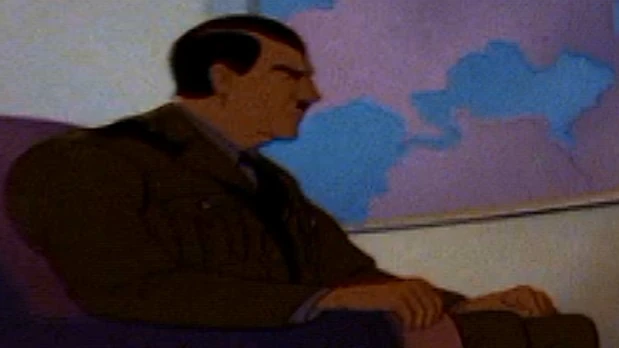
(According to the ever-helpful DC Fandom Wiki, Hitler’s Powers and Abilities include “Artistry”, “Military Protocol”, and “Political Science”.
Closing Thoughts
I had an idea for a story once. Real life superheroes, whose powers are strange.
- There’s a man who cannot sign his name. Or he can, but it’s a different signature each time, as though a different person is writing it. Sometimes his signature will look flowery and feminine, other times clipped and jagged. He gets in no end of trouble with the bank and post office, but he simply cannot produce a consistent signature, no matter how hard he tries.
- There’s a girl who is never noticed at security gates. Ever. She can walk onto a train, and nobody will check her ticket. She can walk into a movie that’s already playing, and the usher won’t ask to see her stub. Many of us have gotten lucky this way. She has gotten lucky hundreds of times.
- There’s a boy who is ignored by pets. I don’t mean that in the usual “animals don’t give a fuck” sense. I mean pets literally don’t seem to see him. When he pets a sleeping cat, the cat doesn’t purr. When he’s left to dogsit a friend’s mamalute, the dog whines in abject loneliness, pacing the house as if it’s empty, completing ignoring him. You know how animals sometimes seem to see things we don’t? What would it mean if they somehow didn’t see you?
- There’s a man who doesn’t exist in history. He accomplishes incredible, amazing things…but by next year, they’re gone. He once killed a mugger in a dramatic home invasion. It was all over the newspapers, but when you look up those stories, they are different. No mention of him. He once won a marathon. But on the internet, the winner is listed as a different man. He lives a frustrating existence. He could take over the world, and the world simply would forget it’s ruled by him.
I abandoned this story. For one thing, it was too close to the plot of Mystery Men.
For another, I realized I was revisiting the same theme, over and over. Superpowers that imply you don’t exist.
Perhaps I was subconsciously reacting to Superman. He is the blandest, emptiest nothing I can imagine. In him, I feel the dark sky. The sea’s aphotic midnight swell. The black space that’s devoid of anything, even Kryptonite planets.
No Comments »

